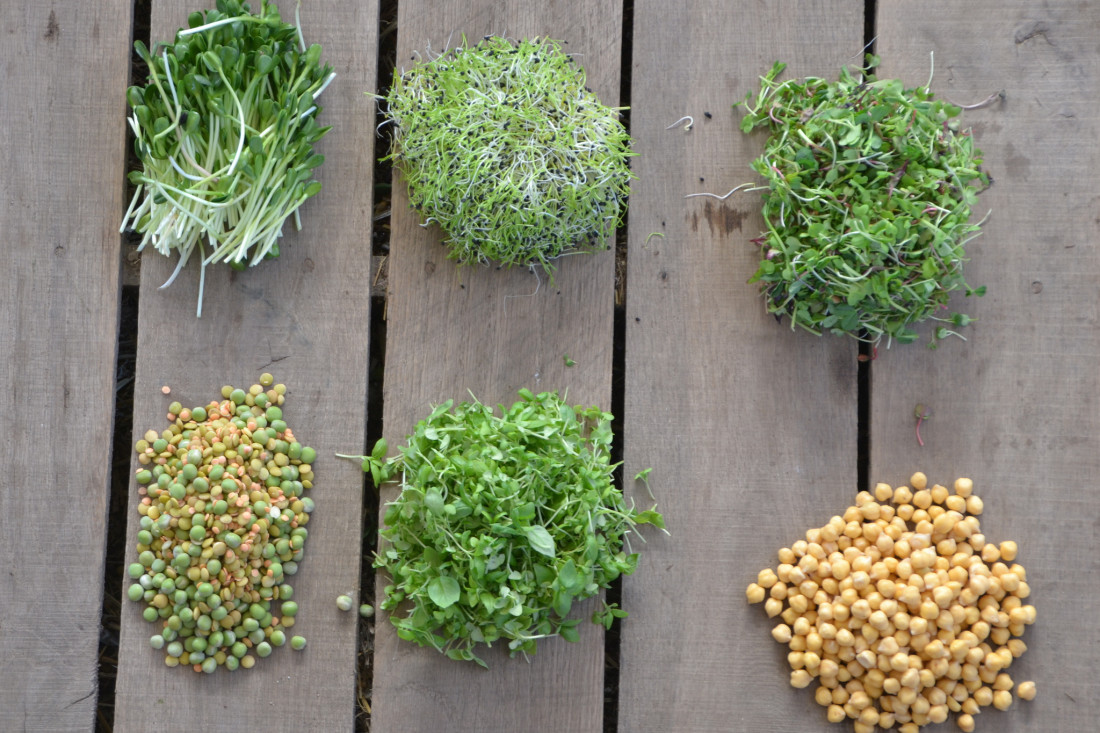
Microgreens: A New Approach to Urban Gardening
One of the major issues we are facing in our food industry today has to do with the quality of the nutritional value available in our produce. In addition to being sprayed with herbicides and pesticides, there are many cases where produce (usually imported) is picked before it has ripened which decreases it’s nutritional value.
In a perfect world, I’d wish for us all to have our very own nourishing, luscious and plentiful organic gardens. I often dream about what it would be like living in the middle of nowhere.. perhaps circa 1600? Growing my own food and raising my own happy cows and chickens, knowing exactly where each fruit and vegetable I ate came from and how it was grown.
It can be overwhelming learning about the causes and effects of our modern day food industry but there are small and simple things you can do to better your health and the environment when it comes to choosing your produce. I’m happy to share with you one of them: growing microgreens in your very own home!
Or apartment..or condo.. or townhouse.. or cubby (as long as it has a window).. well, you get the point.
First off, if you haven’t heard of microgreens before, they are kind of what they sound like they would be. Much smaller versions of greens, herbs or other vegetables. Some examples include (but are surely not limited to) cilantro, parsley, spinach, cabbage and bitter greens such as mustard greens, chard and dandelion. Also included are radish and fennel. I’ve even heard of people growing micro cauliflower, beets and carrots. And please don’t mind me calling a vegetable cute – but they are pretty freakin‘ cute.
After doing some research, it sounds like a common impression that microgreens have become the latest culinary fad, first becoming popular in California and gaining a favorable reputation amongst chefs along with food lovers in London. Perhaps this is a reason they can be slightly on the expensive side in local grocery stores. Lucky for us, they are simple and easy to grow in our own homes, even in the smallest apartment. As long as you have a window where light is able to shine through for a few hours each day, you’re all set!
Before I give you a brief rundown on what you need and how to grow them in your own home, I’ll quickly outline the health benefits of these precious little veggies. First off, growing them in your own soil ensures they are not contaminated with herbicides and pesticides unfavorable to health. They are also harvested and picked at the right time which means they have had a chance to become nutrient dense and flavorful, making them a wonderful, unique and nutritious addition to any dish. Lastly, they are grown by you! Which means you can put all of your loving energy and intention into them while they grow. Of course, any type of green has always made the very top of my list in regards to packing a nutritious value with an abundance of antioxidants, vitamins and minerals.
To add to the benefits, microgreens can accommodate a busy lifestyle due to their lenience in timing (when growing certain types of produce, timing can be everything) – usually taking around 14-21 days to harvest. They can be grown indoors all year round and grown outdoors in cooler climates in every season other than the winter. Sunlight is needed to ensure healthy growth of microgreens and it’s best to water them daily (although this can vary, depending on the humidity of the room they are being grown in.)
This is a great project for kids to take part in (especially if they’ve previously developed a distaste to vegetables) and can be done in a local community garden or restaurant. Microgreen starter kits can be purchased at most local health food stores, or even from the seeds of your own purchased vegetables.


